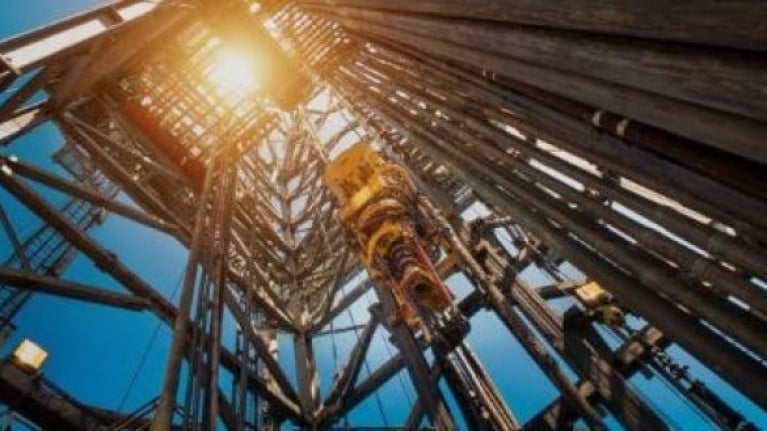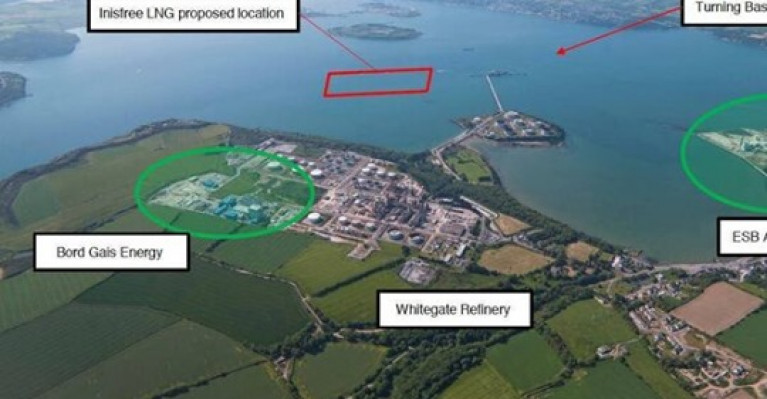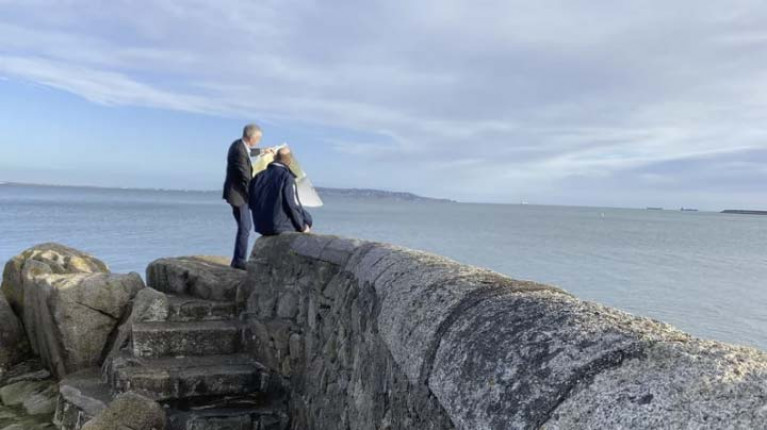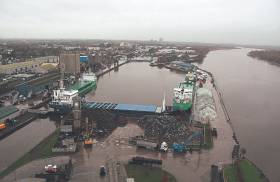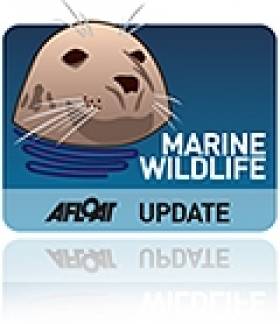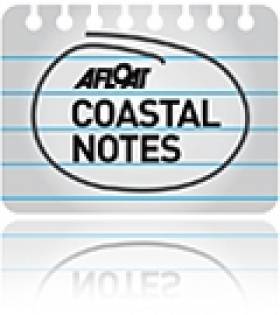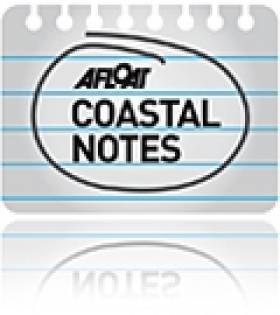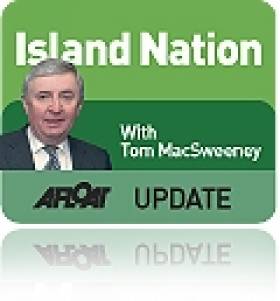Displaying items by tag: Green Party
Fracked Gas: Plans to Import through Cork Harbour Shelved
In Cork the Green Party has welcomed confirmation that plans to import fracked gas into Ireland from the United States through the Port of Cork have been scrapped.
Green Party member of Cork City Council, Cllr Oliver Moran said Minister for the Environment Eamon Ryan confirmed the proposal to import liquefied natural gas obtained through fracking has been scrapped.
“Ireland banned fracking in 2017. The support from across Cork city and county in opposing the importing of fracked gas through Cork after that has been tremendous so this news is very welcome,” he said
“The message is very clear – Cork does not welcome fracked gas. We know we have to make the transition to a low carbon economy but fracking and all of its effects have no place in that. Not here, not anywhere.”
More from The Irish Times here.
Motion by Green Party to Ban €125m Gas Project in Cork Harbour Fails
In a motion by Green Party members to stop the development of a €125m natural gas processing plant in Cork Harbour as well as further oil and gas exploration off the Cork coast has failed.
Green Party councillor Alan O'Connor had sought to have the ban on new fossil fuel infrastructure and exploration enshrined in the forthcoming Cork County Development Plan, which is a blueprint currently being drawn up for development in the region for the next six years.
County council chief executive Tim Lucey said current national policy on energy security "does not support the stance of opposing the construction of new fossil fuel infrastructure, or opposing the exploration for gas and oil covered by existing exploration licences.”
Mr O'Connor argued several major studies had shown no new fossil fuel infrastructure or exploration should take place if the world is to address climate change.
His party colleague Liam Quaide said thousands of scientists had flagged the climate emergency and increased melting of permafrost was one of the “dire warnings” that needed to be heeded now, and there needed to be a decarbonisation of the Irish energy system.
More reading the Irish Examiner has here.
Dublin Bay Water Treatment Not Fit For Purpose, Says Green Party
Water treatment in the capital is not fit for purpose, says the Green Party as it calls for action to improve water quality in Dublin Bay.
The party’s Dun Laoghaire General Election candidate Ossian Smyth told RTÉ News that existing development levies should fund badly needed improvements to the city’s water infrastructure.
Green Party MEP Ciarán Cuffe added that was not acceptable for large parts of Dublin Bay to be unavailable to bathers in the summer months.
It comes after a series of bathing spot closures around the bay last summer — though some of these were prompted by algal blooms not directly related to the release of wastewater.
RTÉ News has more on the story HERE.
New Service? - Rosslare Europort to Le Havre, France Shipping Route Could Benefit Waterford
In Waterford, the Green Party has welcomed moves to open a new shipping route linking Rosslare Europort to Le Havre in France.
An Irish delegation according to WaterfordLive, met with representatives of the French government and officials from the port of Le Havre last Friday with a view connecting the two ports by sea.
Responding to the news, Cllr. Marc Ó Cathasaigh commented the route has the potential to relieve some of the pressure on Dublin while benefiting the Southeast region and to help insulate Waterford from the worst effects of a crash-out Brexit.
"Rosslare Europort is of enormous strategic significance, all the more so with the spectre of Brexit looming. We know that Dublin Port and its surrounding infrastructure is creaking at the seams, and opening additional capacity through Rosslare could allow the Southeast to become a counterweight to Dublin-centric development and help drive economic activity here in Waterford."
The Tramore-based councillor also believes that opening a route to Le Havre could unlock European funding to develop the surrounding infrastructure.
For more click here.
Afloat adds Greek operator Neptune Lines launched in 2017 a vehicle importing service based on the following rotation: Santander (Spain) – Le Havre (France) – Southampton – Portbury - (both UK) and Rosslare Europort.
As for the last passenger/car ferry linking Le Havre (see: 500th/Irish ferry routes) this took place when French owned LD Lines began operations in November 2008 served by ropax Norman Voyager. The operation was short-lived as LD Lines withdrew and by September 2009, Norman Voyager was chartered to Irish-owned Celtic Link Ferries but serving instead Cherbourg.
The Wexford (Kilmore Quay) based ferry company would themselves only trade a few years more (see farewell sailing) following acquisition by Stena Line in 2014.
A call from the Green Party in Waterford for the connection between Rosslare, Waterford and Limerick to be considered part of Ireland’s ‘core network’ in the Trans European Transport Network (TEN-T) in a submission made to the Department of Transport’s Draft Climate Adaptation Plan.
The route, as it stands, is not even included in the second tier ‘comprehensive network’.
Marc Ó Cathasaigh, Green Party councillor for Waterford City West and Tramore, believes that the route should be of huge strategic significance both in the context of climate change adaptation and Brexit.
“An upgraded connection running from Rosslare to Limerick would serve three of the island’s largest ports - Rosslare, Port of Waterford and Foynes, two airport - Shannon and Waterford, and serve to connect two of our regional cities," he said.
For futher reading WaterfordLive has more on the story.
'Rogue' Anglers May Shoot Seals Threatening NI Fish Stocks
#MARINE WILDLIFE - Northern Ireland's Green Party has warned that "rogue" anglers may shoot seals that are consuming their fish stocks unless they are relocated, the Belfast Telegraph reports.
The protected seals have been getting into the River Quoile in Co Down, allegedly by way of a damaged fish pass, and decimating the area's fish stocks - much to the consternation of local anglers.
Earlier this week Leisure Minister Carál Ní Chuilín confirmed in a response to a question from Green Party MLA Steven Agnew that department officials have requested the Rivers Agency to carry out repairs on the fish pass.
But she also said that no action can be taken to remove seals from the river "without the approval of the Northern Ireland Environment Agency", adding that her department "does not have the specialist knowledge and equipment to remove the seals".
A Green Party spokesperson described the repair work as "absolutely vital because even if the seals are safely removed from the Quoile they will only make their way back in if the fish pass is not repaired.
"And a rather worrying consideration is that a very small rogue element would be prepared to shoot the seals if a solution is not forthcoming.”
Seal shootings have been much in the news as of late, with gardaí in Waterford investigating attacks on four animals in Tramore.
Minister Rejects Public Inquiry into Dublin Bay Oil Drilling
#DALKEY ISLAND PROSPECT – Environment Minister Phil Hogan has rejected a call by Tánaiste Eamon Gilmore and others for a public inquiry into Providence Resources foreshore licence application to survey and drill for oil and gas in Dublin Bay, the Irish Times reports.
Mr Hogan has said that as the application by Providence Resources for survey and drilling work 6kms off Dalkey Island was the subject of public consultation, he did not consider a public inquiry "necessary".
Tánaiste and Labour Dún Laoghaire TD Eamon Gilmore said earlier yesterday that Mr Hogan should exercise his right to hold an oral hearing under the foreshore legislation. Last month, the Green Party and a number of residents in the Dalkey area also called for an inquiry.
Speaking in Galway yesterday, Mr Gilmore acknowledged that a "couple of wells" had been drilled in Dublin Bay previously, but there were a "lot of issues" relating to the current application.
To read more about this story click HERE
#DALKEY ISLAND PROSPECT- At a public meeting held by Dalkey Community Council last night, it was almost unanimously agreed that a public enquiry should be held over the foreshore licence sought by Providence Resources to carry out exploratory drilling for oil and gas, in the Kish Bank basin, some 6kms off Dalkey Island, writes Jehan Ashmore.
Over 200 residents attended the meeting in Dalkey Town Hall where they heard Tanaiste Eamon Gilmore and Dun Laoghaire-Rathdown County Councillors deal with the issues raised over the proposed seismic survey and exploratory well drill. Among the major issues was the project's proximity to the populated coastline and its special areas of conservation. It was pointed out that Norwegian drilling operations took place at least 25km offshore.
Mr. Gilmore said the fisheries conservation order in which he was engaged with during his role as Minister of State for Marine would form part of his personal submission to the Department of the Environment. When questioned from the floor if he would make his submission public, he said that for transparency he would do so "reflecting concerns of his constituents".
Providence Resources were invited to attend the meeting, but they declined on grounds of the size of the meeting, though small groups can discuss the exploratory drilling of the 'Dalkey Island' prospect at their Donnybrook headquarters.
The company have said that the work they want to do is purely exploratory and relatively low-key and that it can be undertaken unnoticed, with no adverse environmental effects.
Tom Kivlehan of the Green Party, who had last week called on Minister of the Environment Phil Hogan to establish a public enquiry, said: "There are huge concerns among the people of Dublin about the proposed application and they feel that the process does not afford them the opportunity to have their questions and worries answered."
Mr Kivlehan emphasised, however, that the risks and benefits must be balanced. This point was also made by former Green Party T.D. Ciaran Cuffe who said that while untold damage could be done, "we must evaluate everything very carefully."
People Before Profit T.D. Richard Boyd Barrett said he was "absolutely opposed" to the proposal and the impact it would have on Dublin Bay as an amenity and to tourism. He called at the very least for a public enquiry to be carried out before a decision on granting the licence is made and claimed that there were no guarantees that any oil would be discovered or the potential financial benefits of a find would go to the Irish people.
- Dublin Bay
- dlrcoco
- Green Party
- Dalkey Island
- Providence Resources
- Kish Bank Basin
- Dalkey Island Prospect
- Dun LaoghaireRathdown County Council
- Coastal Notes
- Dalkey Community Council
- Foreshore License
- Department of Environment
- Tanaiste Eamon Gilmore
- Dalkey Town Hall
- Exploratory Drilling
- Public Enquiry
- Minister Hogan
#DALKEY ISLAND PROSPECT – The Green Party has called on the Minister for the Environment ,Phil Hogan, to hold a public enquiry in to the application to grant a license to Providence Resources' PLC to carry out a site survey and drill an exploration well in the Dalkey Island prospect on the Kish Bank basin.
Speaking yesterday Green Party spokesperson on Planning, Tom Kivlehan, said: "There are huge concerns among the people of Dublin about the proposed application and they feel that the process does not afford them the opportunity to have their questions and worries answered.
A public enquiry could address their fears. We have seen the consequences of poor public consultation in respect of the Corrib Gas Field and we should learn the lessons from it".
Dublin Bay is an environmentally sensitive area and a tremendous amenity for the population of Dublin, Famous for its Dublin bay prawns, it has a special area of conservation, bird sanctuaries, seal and dolphin populations, fishing grounds, beaches and sailing facilities.
He added: "It also is home to Ireland's largest port and is a busy shipping hub. Any new proposed development that can cause a potential risk to the life of Dublin Bay must be open public scrutiny and be fully transparent".
Under the Foreshore Act 1933 (Section 3, paragraph 9) the Minister has the power to call a public inquiry and "we now ask him on behalf of the people of Dublin to do so as quickly as possible".
As previously reported on Afloat.ie, a public meeting is to be held by Dalkey Community Council next week to discuss the proposed exploratory operation by Providence Resources.
- Green Party
- Coastal Notes
- Dalkey Island Prospect
- Kish Bank Basin
- Providence Resources
- Minister Phil Hogan
- Department of Environment
- Dublin Bay
- Dublin Bay Oil exploration
- Dalkey Community Council
- Corrib Gas field
- Bird Santuaries
- Seal and dolphins
- fishing grounds
- beaches
- Dublin Bay prawns
- Dublin Port
- Dublin port shipping hub
Will Election Promises Be Delivered On?
Fine Gael can, logically from the support which the party garnered in the General Election, be expected to dominate a Coalition Government. In that context, the question arises as to whether they will deliver on their pre-election manifesto commitment to re-establish the Department of the Marine?
The promise to do so was unequivocal, a clear undertaking that the situation created by the former Fianna Fail and Green Party Coalition which had decimated maritime issues by spreading them over several Departments of State, would be changed and all would be contained in one Department.
In the event of a Coalition being formed will we hear that "circumstances" have changed and adjustments must be made in the context of Coalition arrangements?
I had the opportunity to question Joan Burton of the Labour Party, one of the party negotiators, prior to the election at an event organised by the European Association of Journalists. She accepted that politicians had not paid enough attention to the marine sphere and said that this attitude should be changed and accepted that the nation could benefit economically as a result.
I hope that I am not being overly cynical towards politicians, born of long years of journalistic experience, in fearing that pre-election promises may be subjected to change.
• This article is reprinted by permission of the EVENING ECHO newspaper, Cork, where Tom MacSweeney writes maritime columns twice weekly. Evening Echo website: www.eecho.ie


























